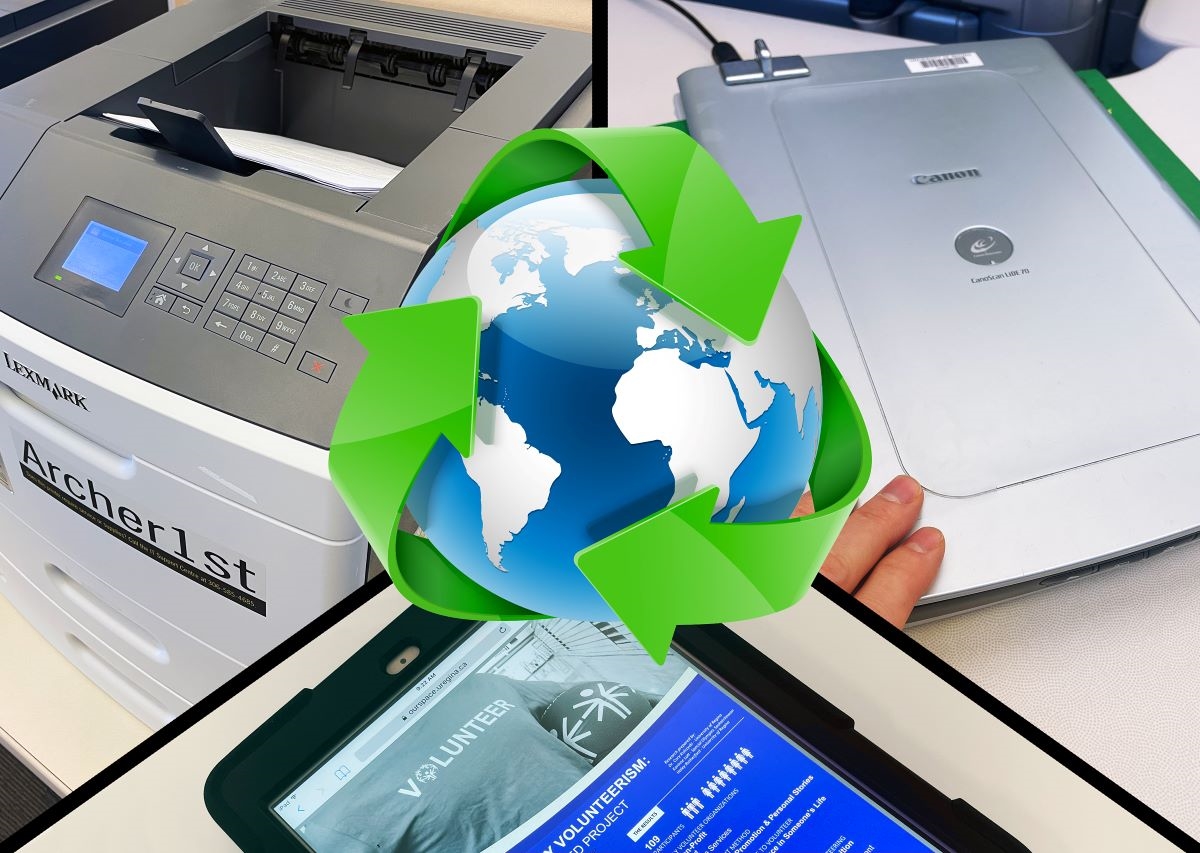
The Archer Library and Archives, as part of the University of Regina’s strategic focus on environment and climate change, is committed to the environmental sustainability of its services and collections. Beginning in 2021-2022 and continuing over the coming years, our Annual Report will include updates on our progress related to these strategic goals.
When Covid-19 hit, the ability to provide physical resources obviously diminished, but we rapidly shifted to alternative methods of serving our patrons and the community made possible by scanning and digitization, and continued to increase our focus on electronic resource delivery. In the post-Covid era, much of this ethos has remained as we continue to deliver services and resources online in an effort to reduce both paper costs and our carbon footprint.
Comparing data from the Fall 2019 (pre Covid-19) semester with Fall 2022 (post Covid-19), the library saw an overall reduction in printing (60%) and photocopying (72%) with a significant increase in scanning (40%) across library units.
The shift from hard-copies to digitized content has not only resulted in a significant cost savings for the Library but has also reduced the need to consume paper and the related materials involved in printing, all of which are taxing to the environment over time.

One of our strategic goals is to calculate the waste reduction achieved by purchasing e-books instead of print, using a model developed by the Fondgren Library at Rice University.
Taking 2020-2021 as our baseline, we have determined that even a modest shift from print acquisitions to ebooks has a positive environmental impact. Our 13.5% reduction in print acquisitions over 2 years led to an equivalent decrease in solid waste and greenhouse gas emissions. In comparison, our e-book acquisitions generate no waste directly and the majority of GHGs they produce come from the electricity required to read the ebooks.

